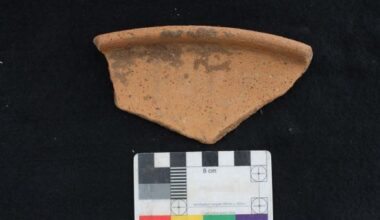Project summary
The Islamic Bayda Project is part of the broader Late Petra Project that aims to reconstruct the post-urban history of Petra and its region, which were inhabited after the Nabataean period without significant chronological gaps.
Project details
Location: Jordan
Year(s): 2020
Project director(s): Micaela Sinibaldi
Lead institutions and funding:
- CBRL
Project description
The Islamic Bayda Project is part of the broader Late Petra Project that aims to reconstruct the post-urban history of Petra and its region, which were inhabited after the Nabataean period without significant chronological gaps. The project focuses on a middle to late Islamic-period rural village located in Bayda, north of Petra, which holds what is today the most substantial and accessible evidence in the region of a settlement during the Islamic period.
Launched in 2014, the project has now conducted six continuous seasons, and it has investigated one habitation and two mosques – rare features in the Petra region – and the first mosques so far excavated in the area.
The goals of the project include: recording and reconstructing the architecture and building style of the structures; and understanding daily life at the village and framing it within the broader context of the other sites in the region, including Petra itself, during the Islamic period.
The project encompasses the synergic use of the different components: study of the local, modern material culture, to better understand the archaeological record; fieldwork training to Jordanian and international archaeologists; and community engagement through the training of local staff and activities with schools of the Petra region.
Related projects
Islamic Baydha project 2018-19. More information here.
Project bibliography
Sinibaldi, Micaela. 2021. Islamic Bayda Project. Bulletin of the Council for British Research in the Levant 2020, p 30.
Published:24 January 2022















